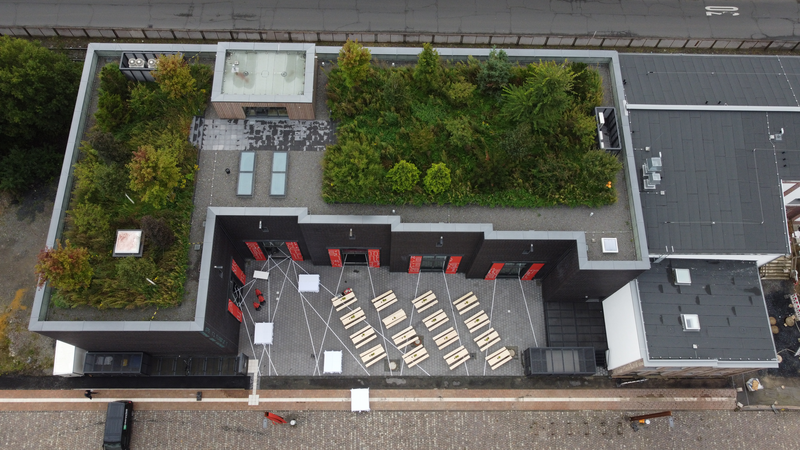On September 2, 2023, the Academy for Theatre and Digitality opened its new, nearly 2000m2 building at Speicherstraße 17 in Dortmund’s emerging Digital Quarter. The black brick building (Architektur.dlx) was unveiled at a ceremony attended by Ina Brandes, Minister for Culture and Science for the state of North Rhine-Westphalia, Thomas Westphal, Lord Mayor of the City of Dortmund, and 150 guests from the worlds of art, politics, science, and business.
Fifteen artistic digital projects occupied the building throughout the afternoon. Marcus Lobbes, director of the Academy for Theatre and Digitality, explained:
“The future of digital is analogue. This is about the vision of bringing together partners from culture, science and technology, and this vision – one of constant exchange, communication, and networking – finds a wonderful new home here, today. The Academy for Theatre and Digitality’s new building is a place for the arts, an incubator, where we can research and develop the theatre of the future together.”
For this very purpose, the building has seven research labs ranging from 60 to 220m2,, as well as additional studios, workshops, and rehearsal spaces. A roof terrace with its own forest gives further space for artistic ideas to grow, and over 30 trees offer an analogue balance to the digital work below. For Kay Voges, the founding director of the Academy for Theatre and Digitality, the opening of the new building is a dream come true: “Thanks to the support of the federal government, the state, and the city, as well as Theater Dortmund and its many dedicated colleagues, it fills me with pride to look out at this wonderful building, one which will serve as an artistic, forward-facing, and inspirational international research laboratory.”
Already internationally renowned, the Academy for Theatre is driving global cultural change under the digital banner. Fellows from all over the world come to the Academy to explore analogue and digital forms of theatre, and to conduct applied research with cutting-edge technologies, from augmented and virtual reality to motion capture, sensor technologies, robotics, 3D-printed costumes, and artificial intelligence. Their research also considers important social topics, such as human-machine interaction, research into alternative energy resources, the networking of different cultures, and various phenomena of the digital world, from chatbots and fake news to hybrid figures and the avatarisation of humans. Cumulatively, this research, discussion, and cultural and artistic networking with partner theatres creates a symbiosis of art, theatre and science which is enhanced by its global reach.
A new chapter begins at the Academy for Theatre and Digitality this September, with the arrival of international scholarship holders for the 8th research fellowship.


